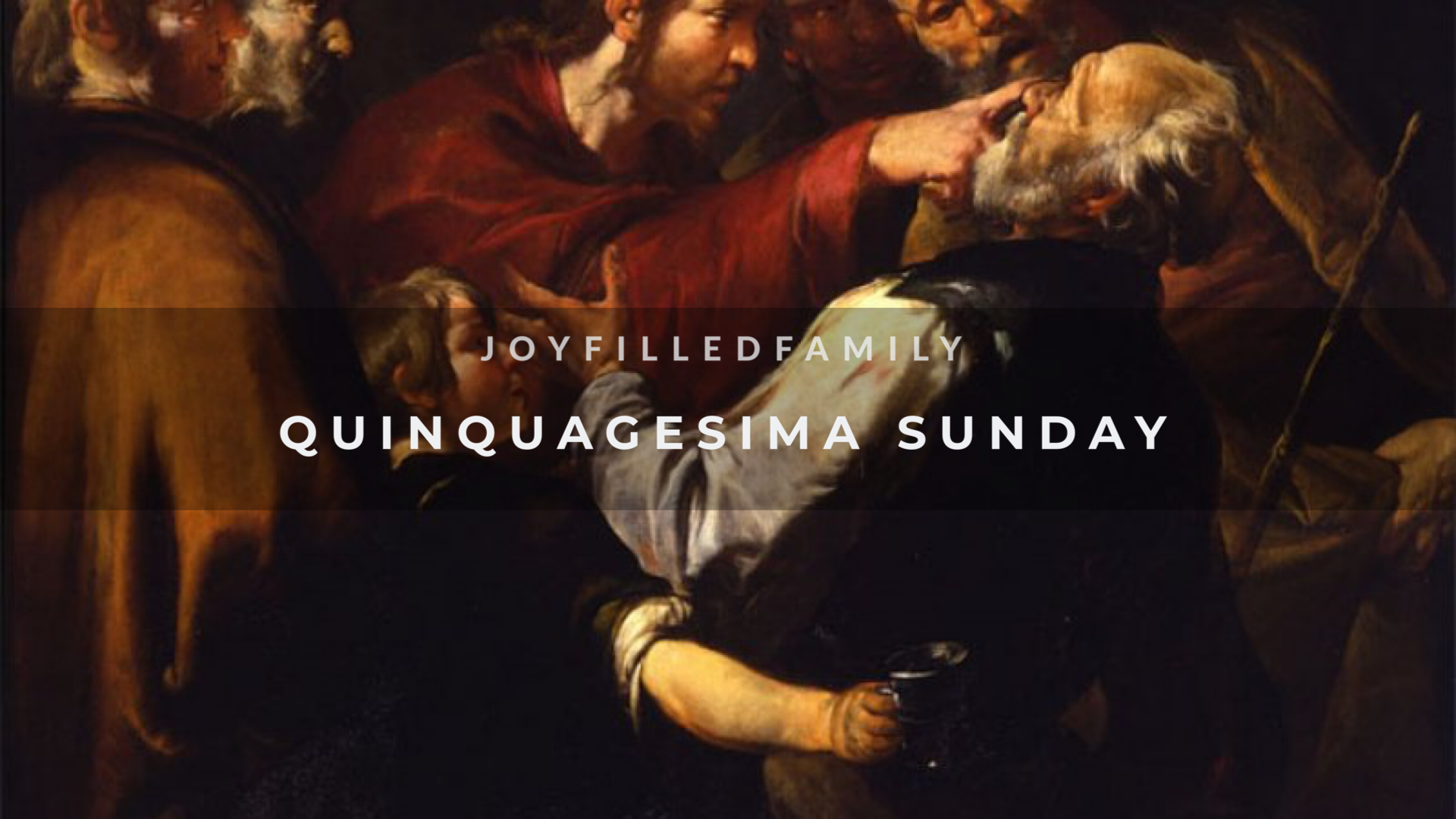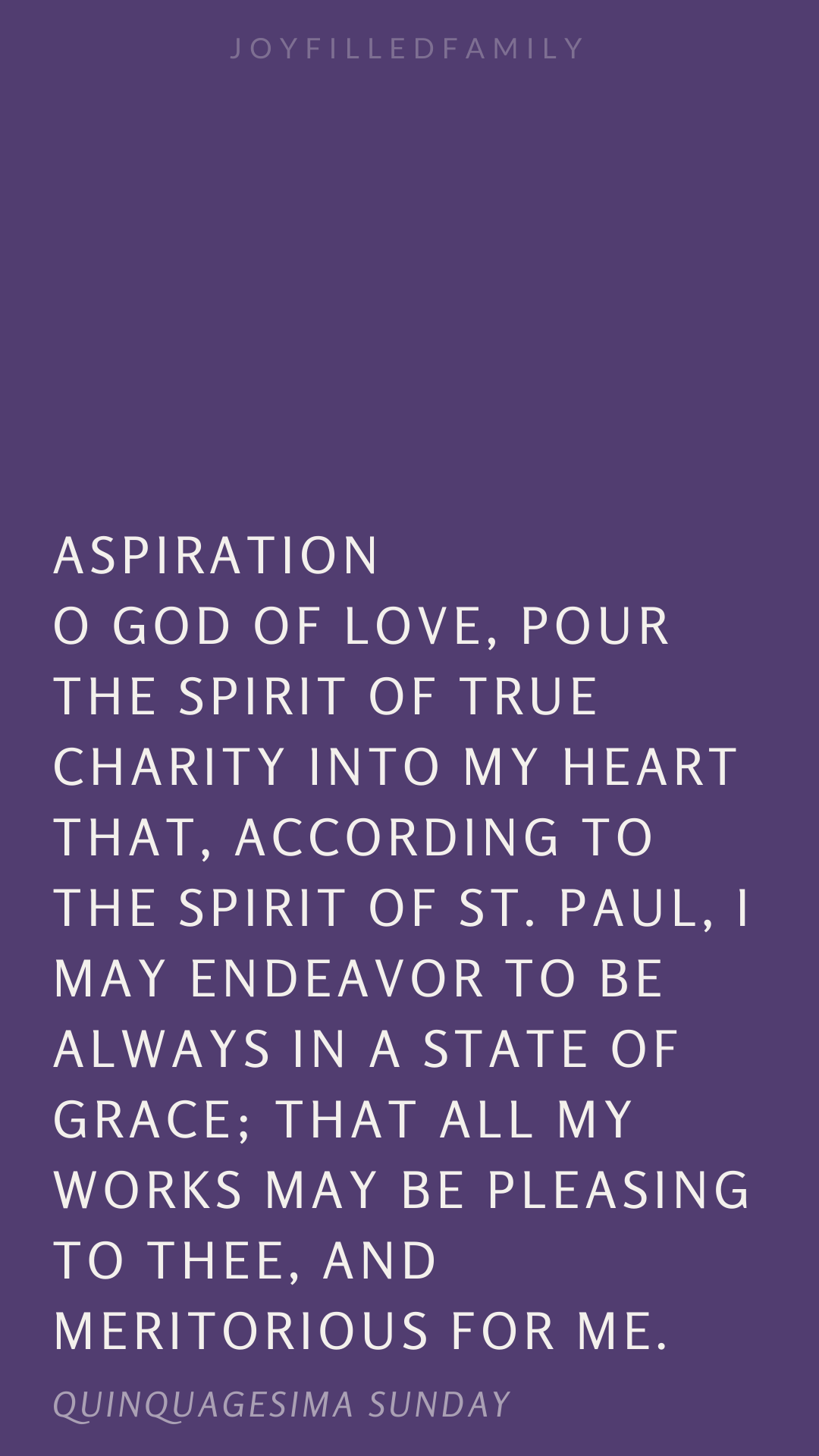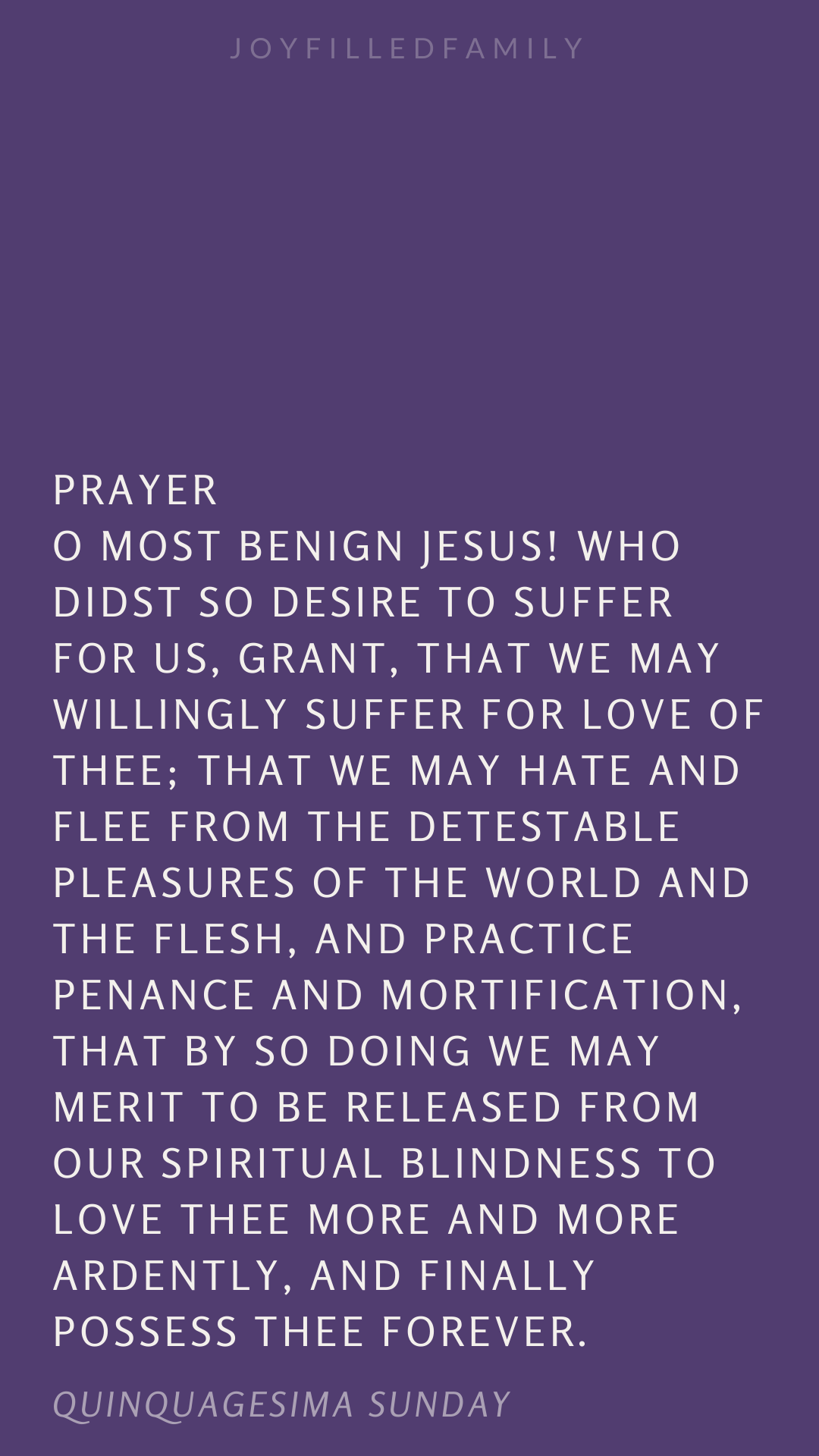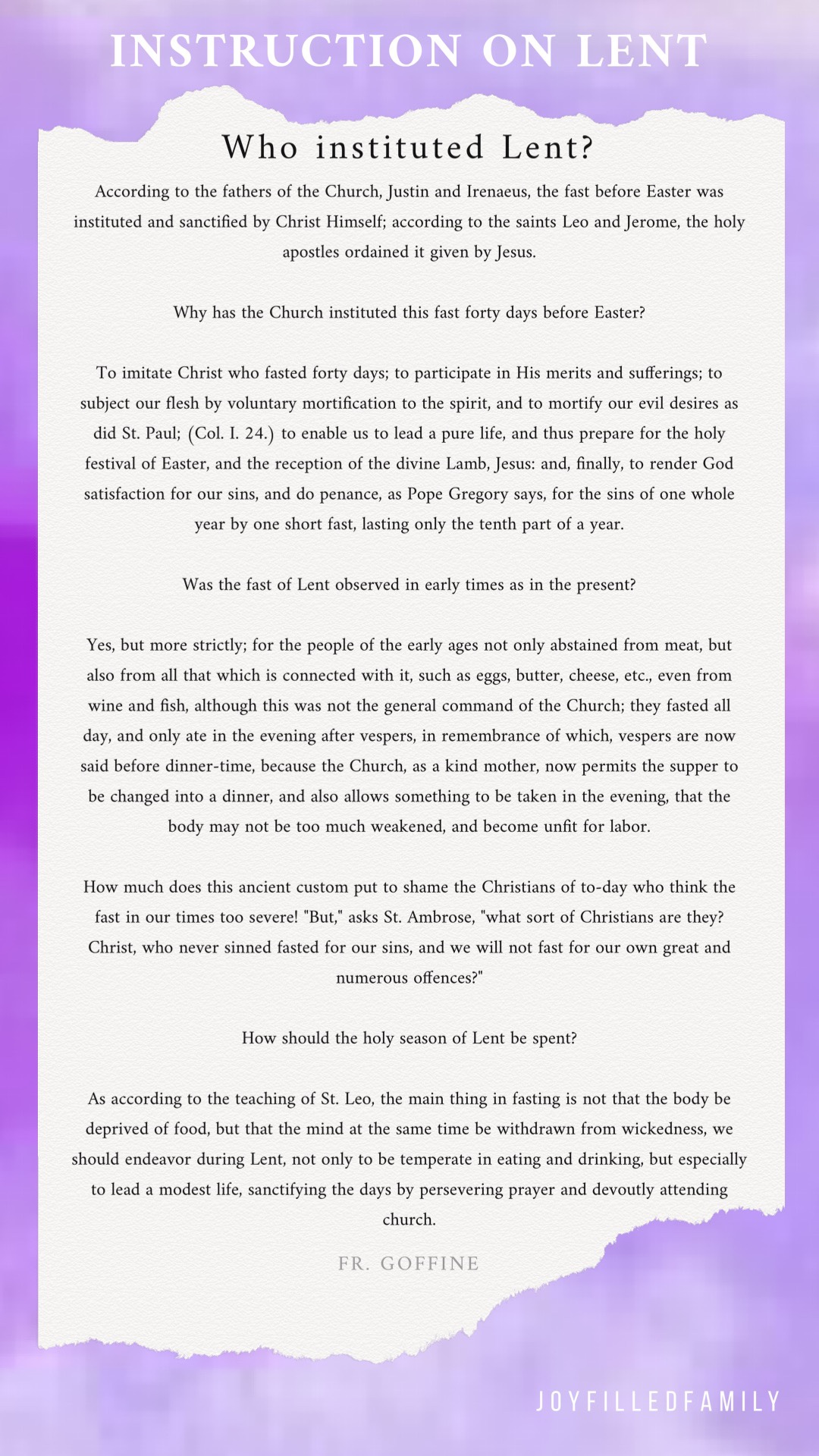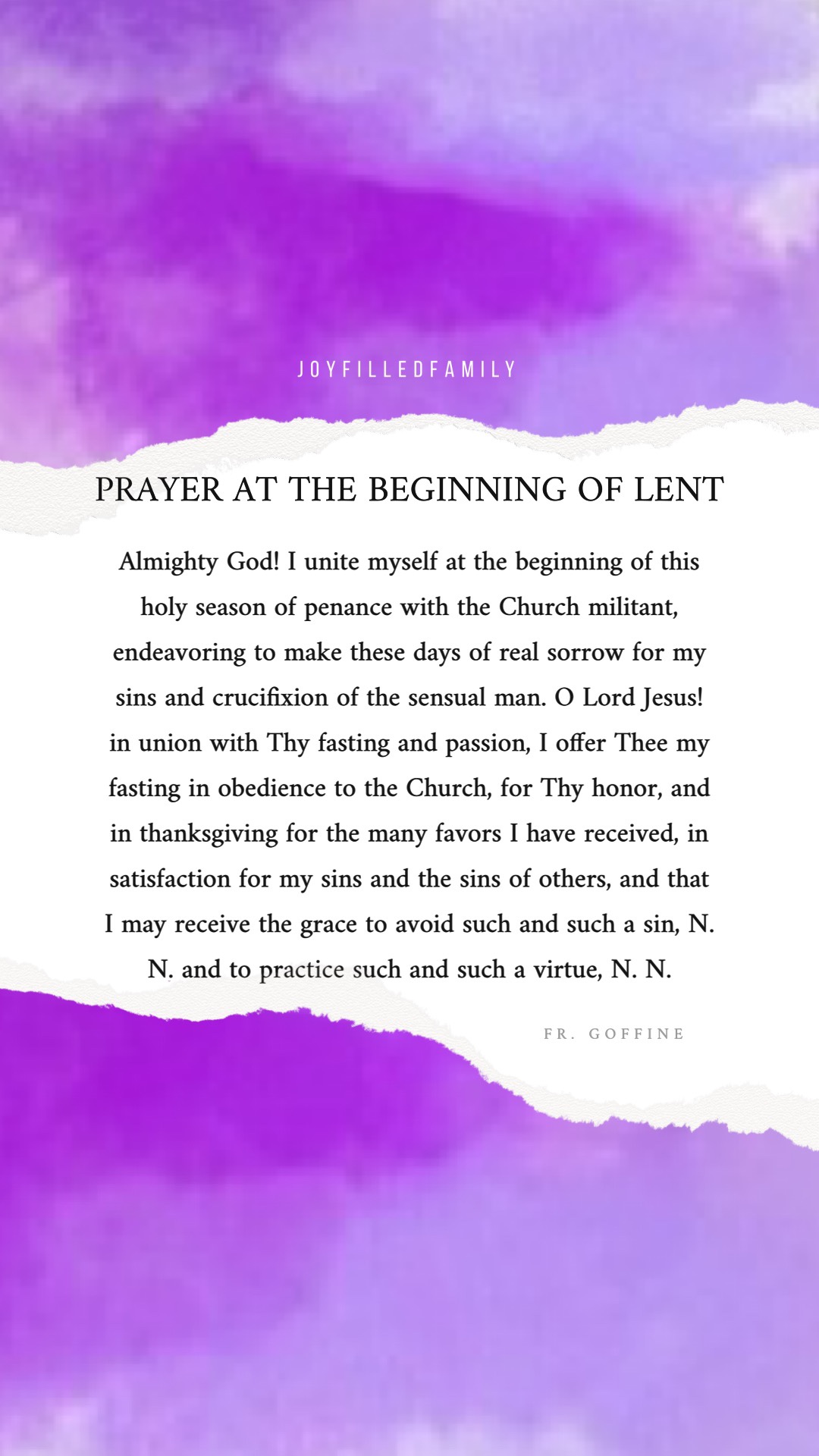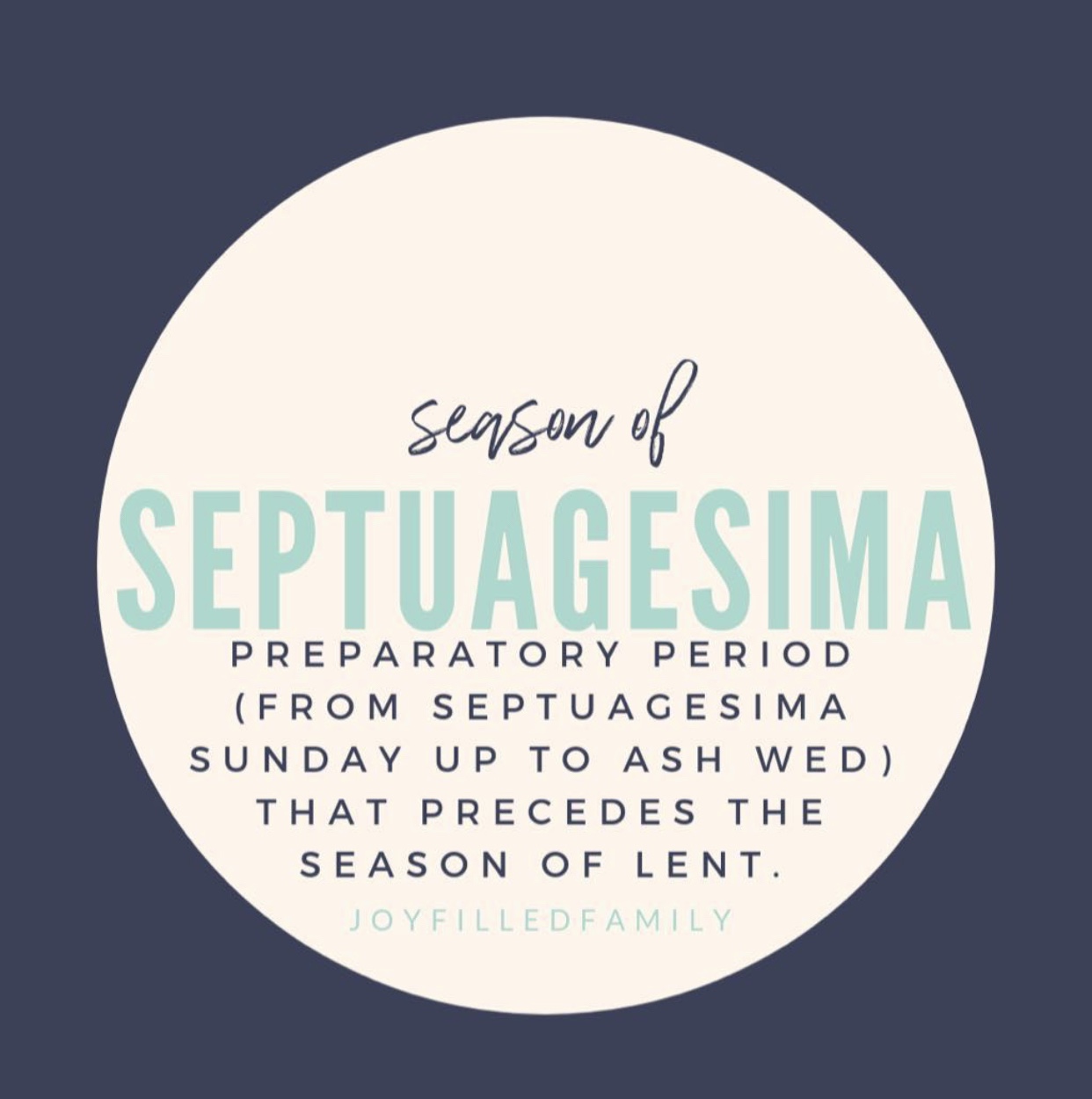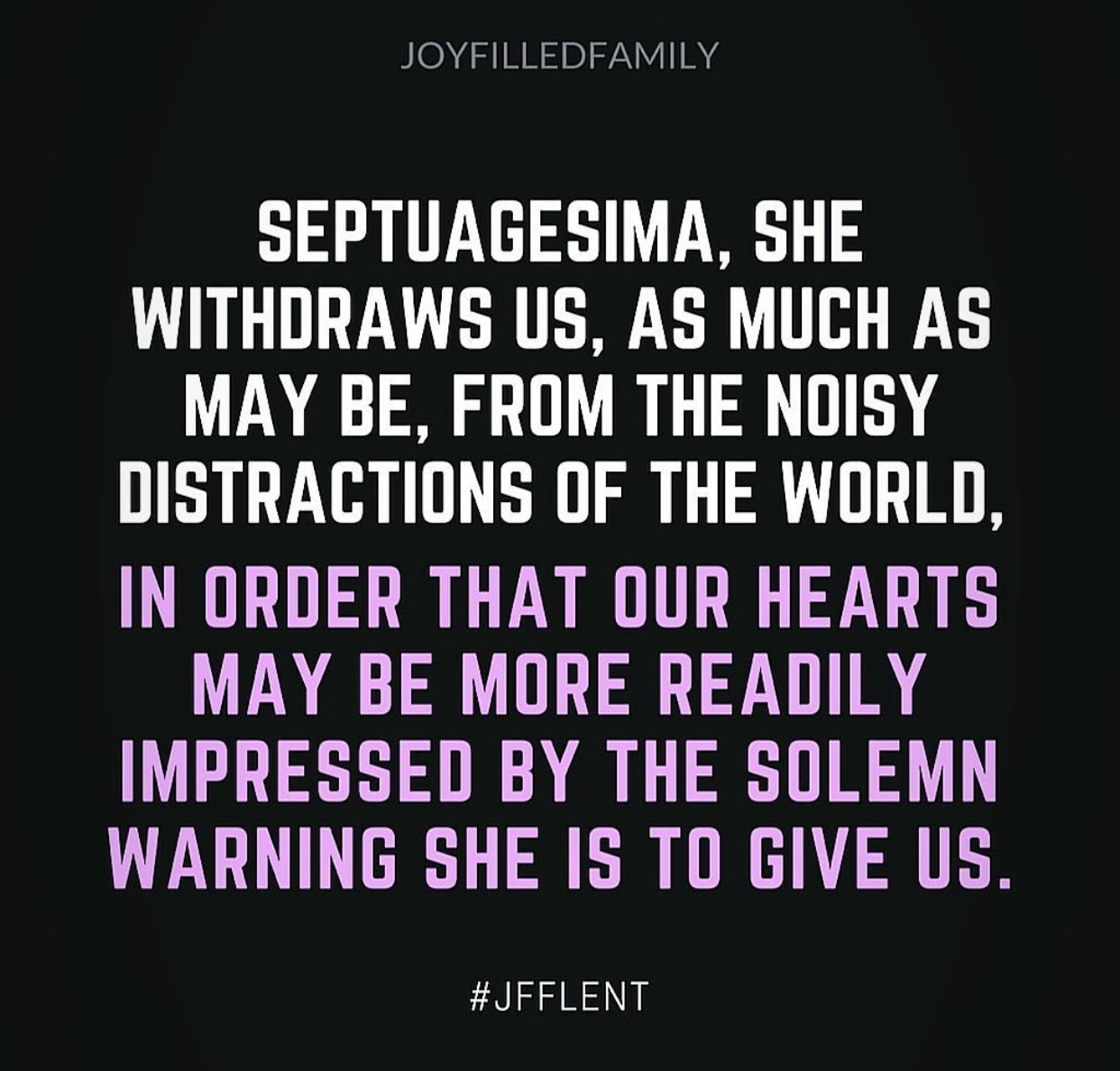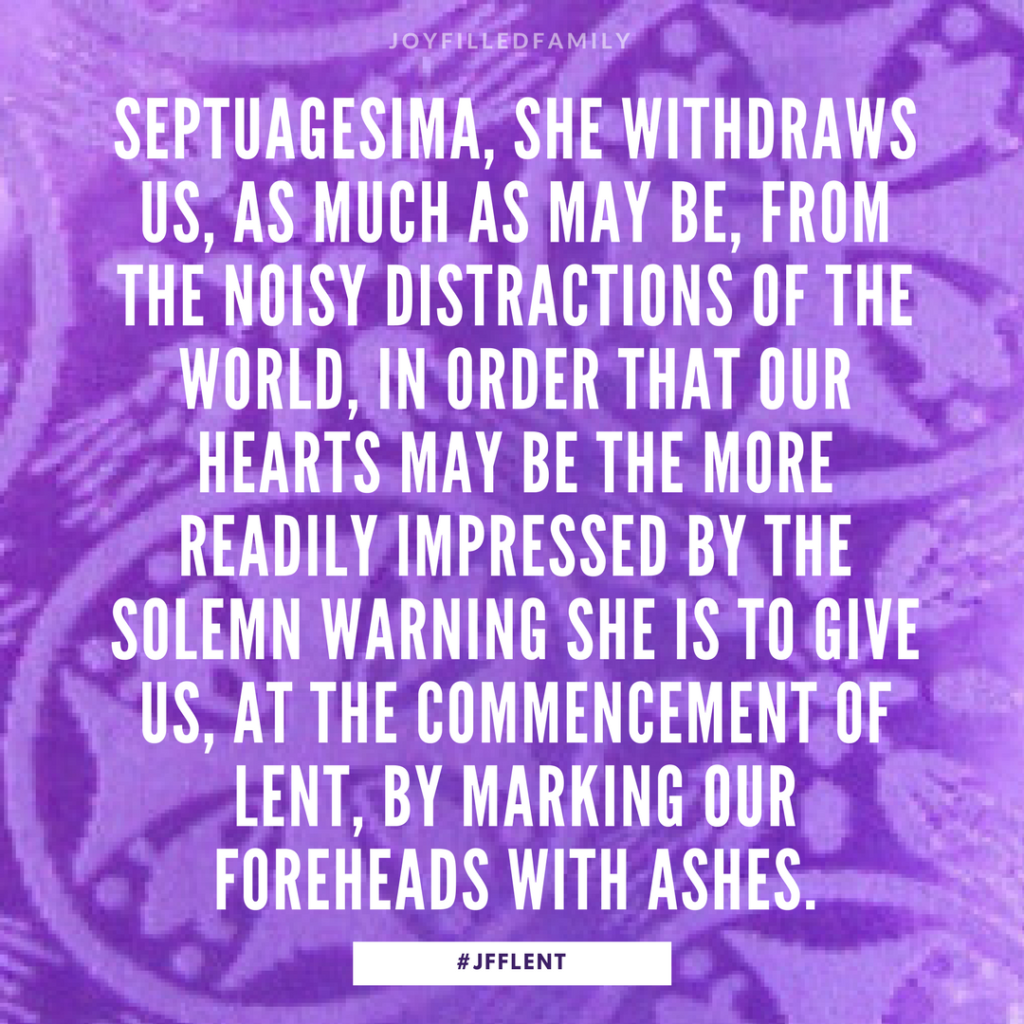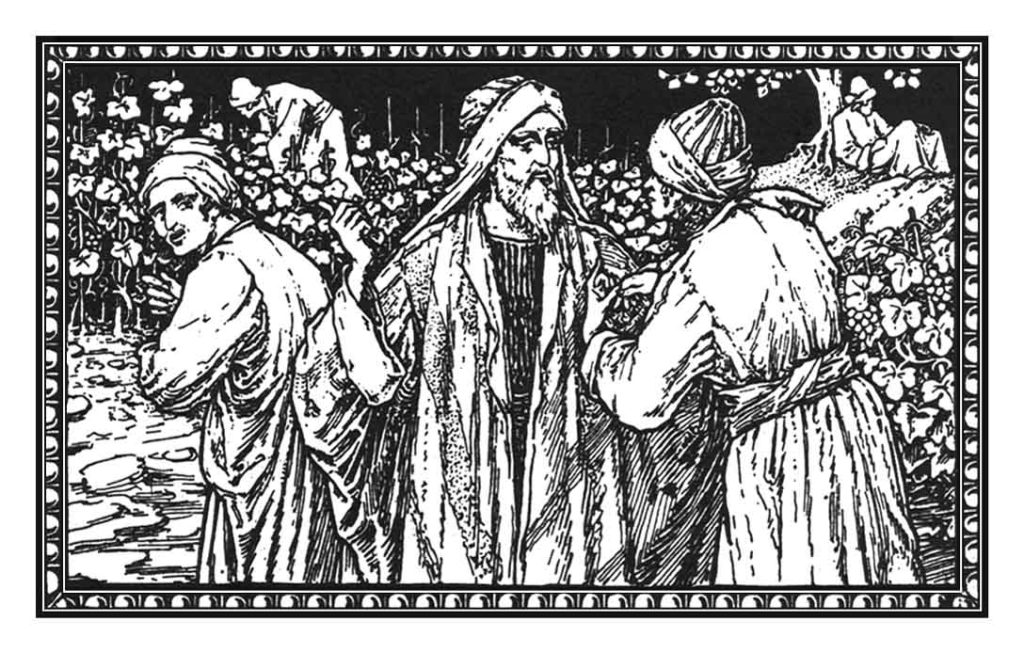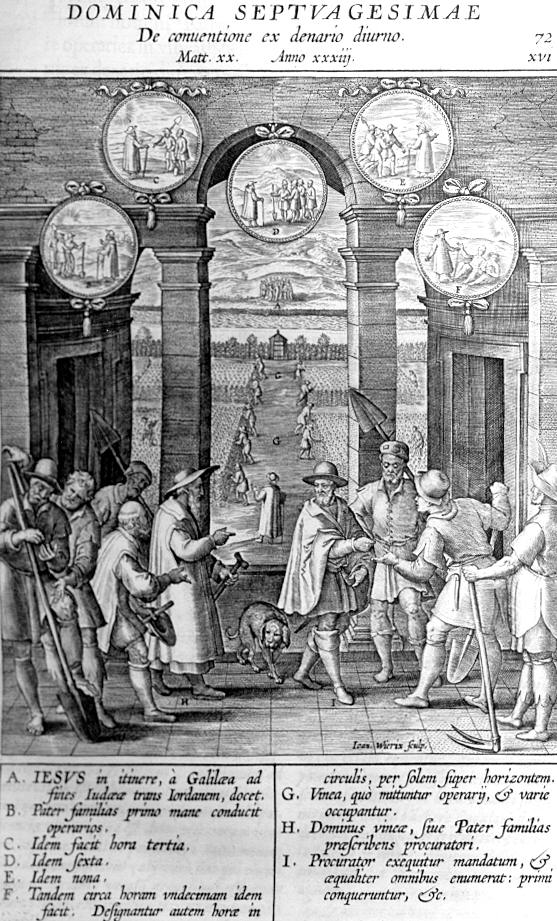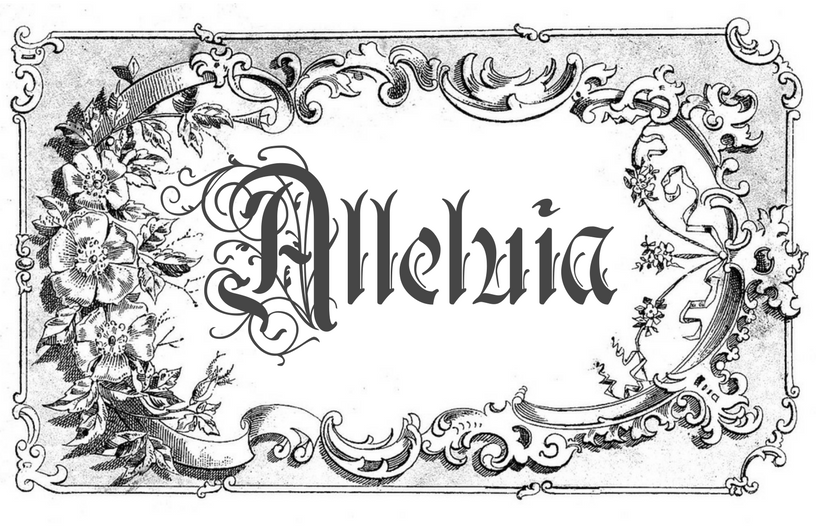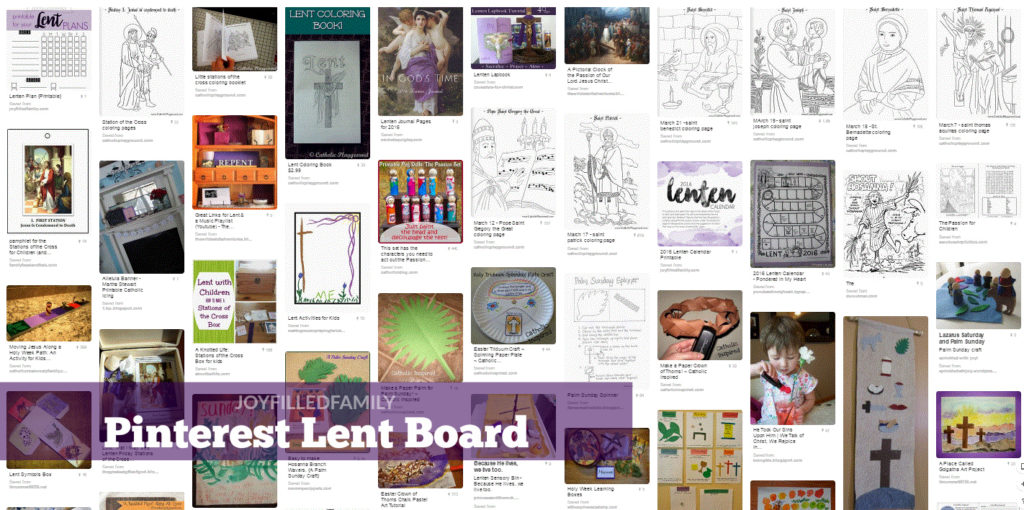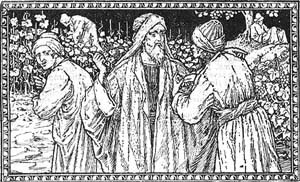Not more than a week has past since Christmas ended (2.2) and now Holy Mother Church moves us into Septuagesima. This is the time for us to prepare for Lent — there is no idleness.
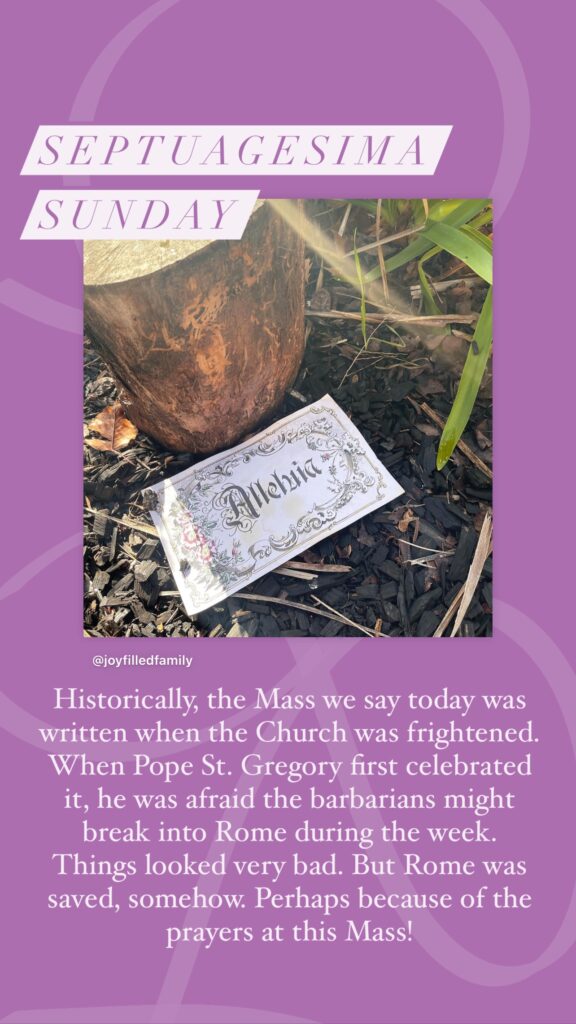
Holy Mother Church helps to bring us to the necessary sorrow. She has the flowers removed from the altar, the somber violet vestments are on the priest’s shoulders – the vestments of death, a priest is dressed like this when he is about to be carried forth to his grave. The Gloria and the Alleluia are gone from the Church’s lips, and the Alleluia won’t be heard again until it bursts from her heart on Holy Saturday morning.
We bury the Alleluia at our home as well, to unite with the Church and help to bring our children deeper into the season — fight against self while strengthening our hope in God.
➕
“The kingdom of heaven is compared to the proprietor who hires laborers to work in his vineyard.” St. Gregory the Great writes that the primordial Eden was a figure foreshadowing the present vineyard: the Kingdom of God, the Church:
Who can be more justly represented as head of a household than our Creator who governs all creatures by His Providence and who, just as a master has servants in his house, has his elect in this world from the just Abel to the last of His chosen, destined to be born at the very end of time?
The vineyard which He owns is His Church, while the laborers in this vineyard are all those who with a true faith have set themselves, and urged others, to the task of doing good.
By those who came at the first, as well as at the third, sixth and ninth hours, are meant the ancient people of the Hebrews, who from the beginning of the world, striving in the person of their saints to serve God with a right faith ceased not, as it were, to work in the cultivation of the vineyard.
But at the eleventh hour, the Gentiles are called and to them are spoken the words, “Why stand ye here all the day idle?” Thus all are called to work in the Lord’s vineyard, by sanctifying themselves and their neighbor in glorifying God, since sanctification consists in searching for our supreme happiness in Him alone.
In response to the call of the Master, who comes to seek us even in the depths wherein we are plunged through our first parents’ sin (Tract), let us go and work in the Lord’s vineyard; let us enter the arena and take up with courage the struggle which will intensify during Lent.
#DomGasparLefebvre 1945 #standrewmissal



